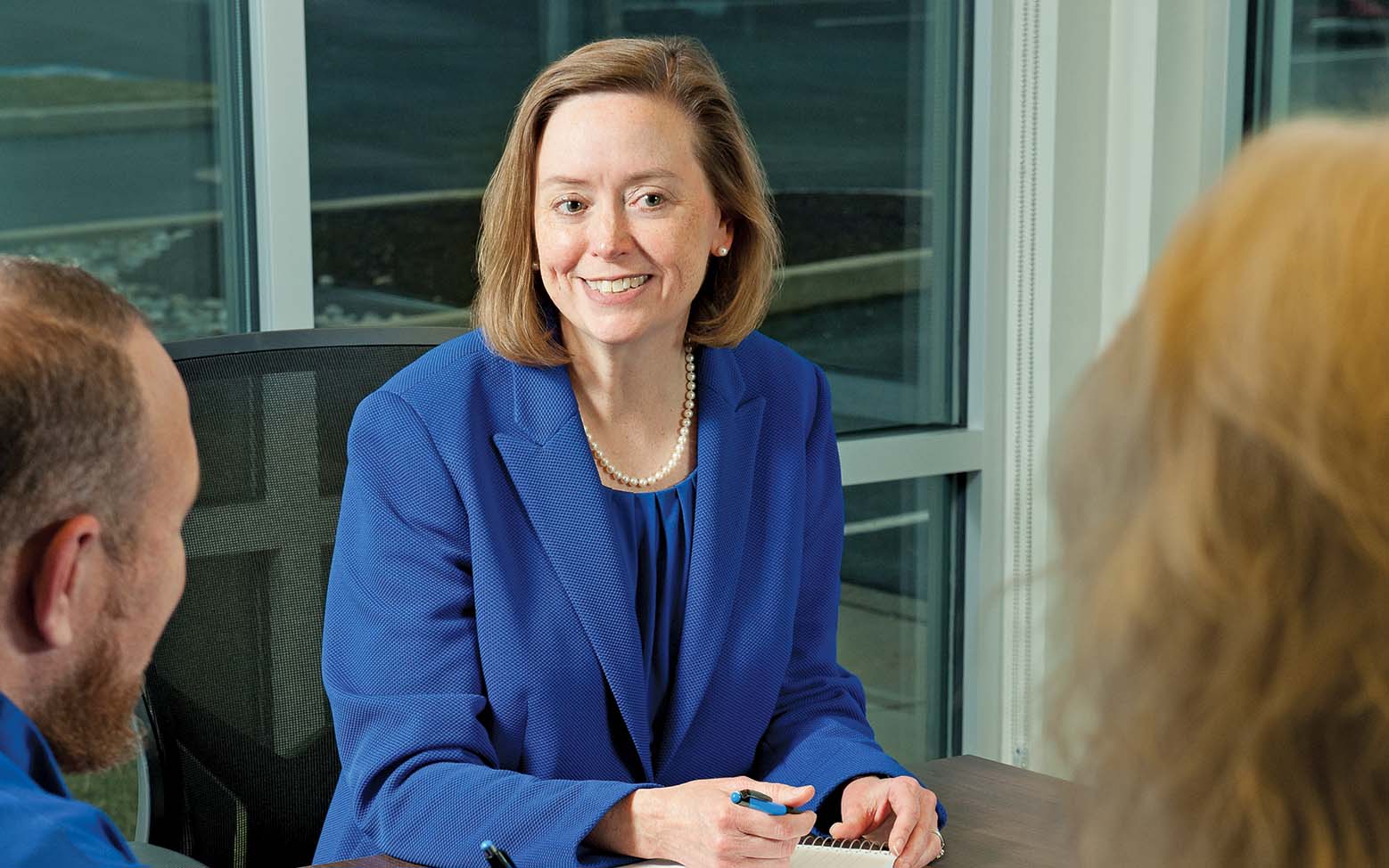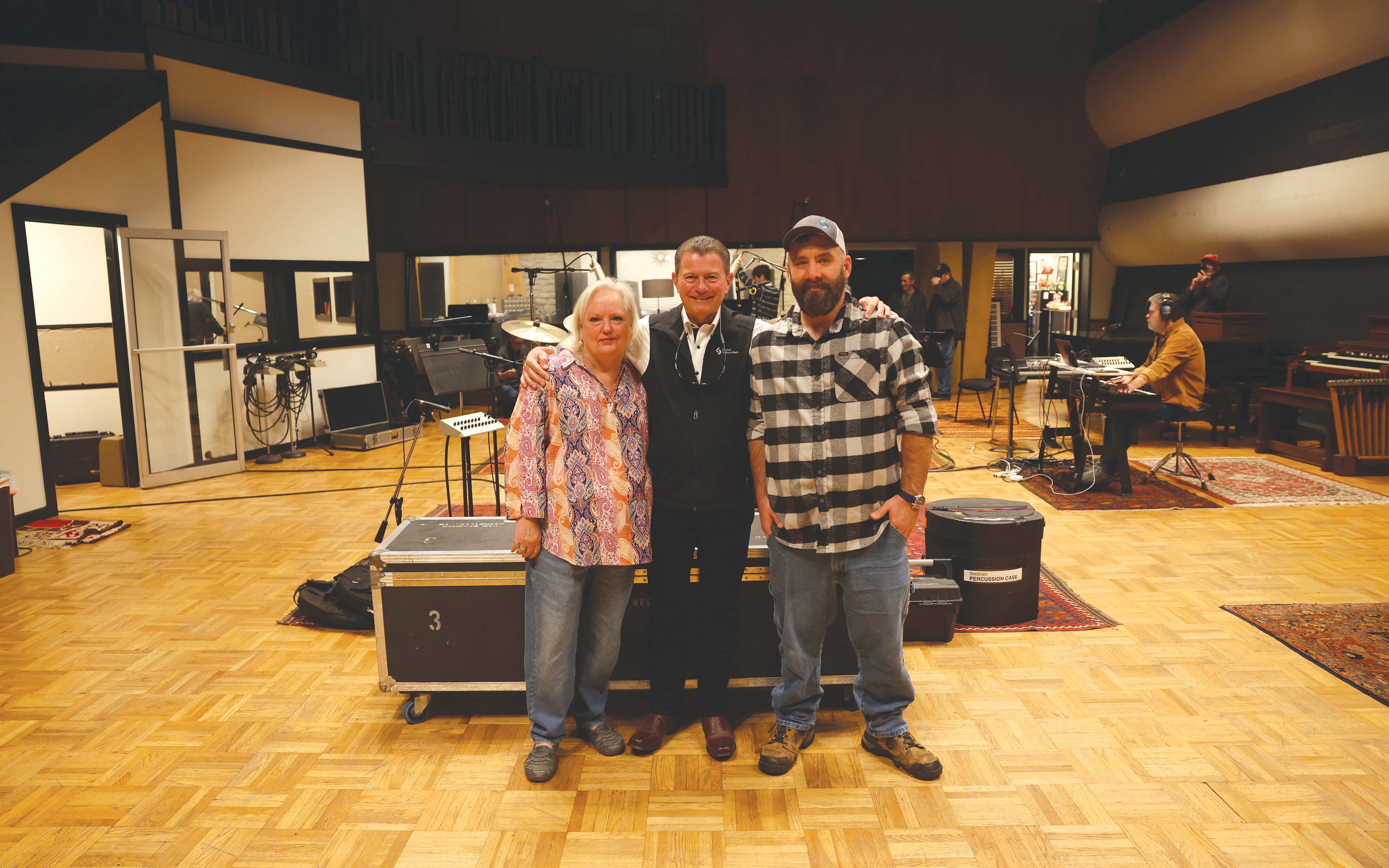In a tight labor market, current and prospective employees are drawn to good pay, Attractive benefits and, importantly, a sense of purpose. Learn about how to build or improve your community bank’s workplace culture from Five of the industry’s top employers.
Best Community Banks to Work For 2024
1224 Community Banks 2k
December 01, 2024 / By Beth Mattson-Teig
In a tight labor market, current and prospective employees are drawn to good pay, Attractive benefits and, importantly, a sense of purpose. Learn about how to build or improve your community bank’s workplace culture from Five of the industry’s top employers.
Methodology
Each self-nominated community bank’s full-time employees were asked to complete a workplace survey hosted by Avannis, an independent research agency. Access to the survey was protected by a PIN unique to each bank. Only community banks that met a minimum of 40% employee participation were eligible for recognition. The survey consisted of 48 scaled responses, and from that an “index” or composite score was calculated. The index represents the average percentage of employees who gave the top rating (Strongly Agree) across all questions. For example, a bank whose employees selected only the most positive responses would achieve an index score of 100%. Eligible banks were then sorted into five asset classes. The community bank with the highest index score in each asset class was chosen as the winner in that class.
» Less than $250M
Anderson State Bank
A legacy of family and community commitment

Many business owners claim to treat their employees like family, but at $111 million-asset Anderson State Bank in Oneida, Ill., it’s the employees themselves who consistently express this sentiment.
“When you work at Anderson State Bank, you are part of the Anderson family,” stated one employee in our Best Community Banks to Work For staff survey. “We are treated like family members and are always taken care of,” said another employee.

“The bank emphasizes a family‑oriented and community-centric approach,” another employee said. “They’re very flexible when it comes to scheduling around our personal needs, and work-life balance is easy to achieve.”
Family-owned for nearly 150 years
The emphasis on family isn’t too surprising when you consider the history of Anderson State Bank. Founded in 1876, the community bank is currently led by chairman and CEO Bill Anderson and president and COO Richard “Dick” Anderson, both of whom are great-grandsons of the bank’s founder, Andrew B. Anderson.

“We have worked hard to create a family culture instead of a traditional business or banking culture,” says Dick Anderson. “Our employees care about each other, about our customers and about the bank. Some of our long-term employees know all of our customers by name, as well as their kids, grandkids and even their pets.”
In a retail business like banking, it’s the personal touch that sets one bank apart from another, says Anderson. “All of our employees are empowered to do whatever it takes to provide great customer service. We also allow employees to try new things and fail without fear. Mistakes can be fixed, but employees need to feel trusted and protected.”
Professional development is a priority

Kaylyn Peterson joined Anderson State Bank part-time in 2017 and is now the VP of operations. “The bank has made my professional development a priority, offering numerous opportunities for advancement and skill enhancement,” she says. “I’ve attended various workshops and training sessions to broaden my knowledge in the banking field.”

The community bank’s strong organizational culture is evident in its impressive employee retention rates. In fact, some employees have worked there for more than 40 years. “This longevity is a testament to the bank’s commitment to its employees,” says Peterson. “Anderson State Bank is undoubtedly the best workplace I have encountered, with an unmatched dedication to both employees and the community.”

Anderson State Bank provides an employee benefits package that’s practically unheard of for a community bank of its size. The bank pays 100% of employees’ health, vision, dental LTD and life insurance premiums and charges $1 for family coverage per pay period. All employees, including part-timers, receive an annual bonus equal to one-and-a-half months’ salary, regardless of the bank’s profitability.
The community bank also contributes a percentage of all employees’ compensation into a profit-sharing plan and matching 401(k) plan at the end of each year. “The bank also looks out for our futures with their generous retirement plan,” one employee wrote in the survey.
“Our fathers and grandfathers laid the foundation for offering generous employee benefits,” says Anderson. “We have a lean team, and everybody works hard, but we also have a lot of fun. We’re always looking for ways to celebrate success.”
3 culture-building tips from Anderson State Bank
Pay high-performing employees well. “You have to compensate employees well and reward them,” says Dick Anderson, president and COO of Anderson State Bank. The community bank monitors compensation trends to make sure its total package is in line with or exceeds those of similarly sized banks in similar markets.
Ensure employees are challenged. “If they have initiative, our employees can advance as far as they aspire to,” Anderson says, noting that a former chairman and a former vice president joined the bank right out of high school and rose up through the ranks.
Make the workplace fun. “Employees who are having fun together provide better customer service, which results in better performance for the bank,” says Anderson.
» $251M–$500M
Catalyst Bank
Embodying core values

Community banks with a strong culture can always answer this question: What does your organization stand for? And so, after completing an initial public offering (IPO) in October 2021, the leadership of $281 million-asset Catalyst Bank in Opelousas, La., made a point of documenting the bank’s core values.
“This really solidified who we are,” says president and CEO Joe Zanco, who joined the community bank to lead it through the IPO. He says the bank identified five core values: truth and honesty even when it’s tough, humility, impact, now and connection.
The importance of core values

Senior administrative officer Jutta Codori believes having these strong core values is a key part of what makes Catalyst Bank a great place to work. “It makes for a better work environment and happier employees,” says Codori. “Management really cares about employees and listens to our concerns.”
Other employees echo Codori: “Our employees genuinely care for one another,” wrote one employee in the Best Community Banks to Work For staff survey. “Whether it’s work-related or personal, we step up to help each other.”
“The bank has a very relaxed and comfortable atmosphere where everyone is like family,” wrote another employee. “The work environment is the best from a CEO who treats everyone with kindness and respect.”

An employee-owned establishment
Catalyst Bank offers all the standard employee benefits you’d expect from an outstanding workplace: robust health, dental and vision insurance; a healthy 401(k) match; a generous PTO policy; and an annual bonus.
But the biggest benefit, says Zanco, is the employee stock ownership plan (ESOP), which makes every employee a part owner of the bank.
“This changes the game in terms of how employees feel about their jobs,” he says. “When employees are also owners, it just matters more to them. Everyone pulls together to help grow the bank.”
Codori, who has been with Catalyst Bank for 18 years, says the atmosphere at the community bank has changed for the better since the 2021 IPO.
“There’s a lot more employee recognition now,” Codori says. “[Our bank president and CEO] Joe wants everyone to enjoy coming to work each day. He helps make this a fun place to work, and he’s sensitive to employees’ needs.”
For example, if employees have personal needs like having to take care of a sick child, they can work remotely if their job allows it. As Zanco puts it, “Our employees are allowed to be parents and grandparents.”

One employee’s win is everybody’s win

Each spring, Catalyst Bank employees gather for a “state of the union” where Zanco shares details on how the community bank is performing. And in December, everyone comes together for a big holiday party.
“Almost every employee attends these events, where we celebrate employees’ accomplishments,” says Zanco. For example, one employee was recently recognized for her 40th anniversary at the bank.
In addition, employees are encouraged to participate in community events and fundraisers. “I do feel that our leadership cares about the well-being of the staff and wants everyone to enjoy coming to work because they like the culture,” one employee wrote in the survey. “I could never imagine any place else being this warm and inviting.”
3 culture building tips from Catalyst Bank
Joe Zanco, president and CEO of Catalyst Bank, shares his thoughts on building a positive workplace culture:
Lead from the top. “Your culture is only as strong as your leadership team,” he says, “which must set the right tone and example at the top of the organization.”
Walk the walk. “Actions speak louder than words,” he adds.
Encourage experimentation. “Leaders need to let employees fail without fear in order for them to grow,” Zenco says. “How you treat employees in these moments [of failure] dictates how many new ideas are brought to the table.”
» $501M–$750M
Mountain Pacific Bank
From the top down

A strong, positive corporate culture starts from the top. At Mountain Pacific Bank, which has grown to $775 million in assets since entering Best Community Banks to Work For, president and CEO Mark Duffy is committed to building an exemplary workplace.
Employees praise the leader of the Everett, Wash., community bank. “Mark Duffy is a tireless leader for whom I have a tremendous amount of respect,” stated one team member during the company-wide employee survey. “He and the bank’s leadership team value their employees and want them to succeed.”

One way Duffy and other leaders do this is by offering opportunities for continuous learning and career advancement. For example, Mountain Pacific Bank pays for employees to obtain banking certifications and attend banking schools and seminars. According to another employee, “We work hard but are rewarded for our hard work and dedication to the bank more than at any other place I’ve worked.”
Beyond the bank
That dedication to achievement continues outside the bank walls. Duffy says Mountain Pacific Bank’s culture encourages outstanding service, community involvement and personal growth for employees.

“We get lots of compliments and recognition for our customer service,” he says. “I believe it all comes back to taking care of our customers. Our employees really take this to heart, which is one of the things that I think makes this a great place to work.”
Notably, Mountain Pacific supports an employee charitable fund and covers all administrative costs and fees, so that 100% of employees’ donations go directly to the charitable organizations of their choice, which are selected in a vote by all participating employees.

“Mountain Pacific Bank has a mission that is consistent with what a community bank should stand for,” said another employee survey respondent. “The bank is involved in giving back to the community with both financial and hands-on resources.”
Adjusting benefits to meet aspirations
Mountain Pacific Bank provides a comprehensive employee benefits package that includes fully paid health insurance, life insurance, a 401(k) match with no vesting, and generous paid time off.

Duffy says the bank’s PTO allowance was recently expanded. Employees now receive three weeks of PTO after one full year of employment, four weeks after five years of employment and five weeks after 10 years of employment.
The community bank also has a committee dedicated to scheduling fun events for employees and their families throughout the year, including a big Christmas party and a summer barbecue. The bank recently rented an entire movie theater just for employees, and it often sponsors employee outings at the nearby minor league baseball stadium.
Duffy says he especially looks forward to his “Lunch with Mark” gatherings, where six to eight employees at a time join him for a meal. “They can ask me anything they want, personal or professional,” he says. “It’s a great way for employees to get to know me and each other a little bit better.”

2 culture-building tips from Mountain Pacific Bank
Focus on employee development, not loyalty. It’s natural to worry that supporting employees’ continuing education might lead them to explore jobs elsewhere, but Mountain Pacific Bank president and CEO Mark Duffy cares more about the individual’s growth. “I want to help our employees develop new skills and advance their careers, even if it’s somewhere else,” he says.
Demonstrate the impact of the community bank business model. “It’s important to make sure employees understand how the work they do can make a difference in the communities we serve,” Duffy says.
» $751M–$1B
Sanibel Captiva Community Bank

Name:
Sanibel Captiva Community Bank
Location:
Sanibel Island, Fla.
Assets:
$913 million
Building community from the inside out
Sanibel Captiva Community Bank in Sanibel Island, Fla., helps people weather the storm—both figuratively and literally.
In the past two years, the bank and its communities have experienced major flooding events from Hurricane Ian in 2022 and, more recently, Hurricanes Helene and Milton. The bank donated funds to local nonprofits and found and paid for temporary housing for employees who were displaced due to flooding.
Since it was first chartered in 2003, $913 million-asset Sanibel Captiva has built eight locations and grown to 125 employees, with a ninth branch planned for Fort Myers Beach.
“The last two years have been a little bit of a challenge when it comes to serving the community and doing normal banking,” says Kyle DeCicco, president and CEO, “but we found a way to continue to prosper and be there for our [employees and] customer base through thick and thin.”

DeCicco credits the community bank’s people as being a key component in this success. “We’re very much an in-person institution,” he says. “We pride ourselves on the old-school community bank feel. When you come into any of our branches, you’re very much welcomed by people.”
Rewarding employee achievement
Sanibel Captiva believes that work ethic and merit should be rewarded. For example, Craig Albert, bank founder, former president and CEO and current chairman of the board, started out in the banking industry as a teller and worked his way up.
“We’ve created a culture where people understand that [advancement] can be possible for anyone,” says DeCicco.

In fact, the community bank encourages and supports its employees’ ongoing education and professional development. “The people are what makes it a great place to work, from our board of directors and executive management all the way down,” says Lana Hollier, senior vice president and director of deposit operations and a 20-year bank veteran. “It’s just a very family-oriented bank.”
Many employees have a stake in the bank’s success. About 60% own stock in the bank, and employees get the right of first refusal to buy additional stock when it becomes available, even before the executive management team and board of directors.
“We do take ownership, and we take things personally, especially the long‑term employees,” says Hollier. “This is ours, and it just feels like home.”

Supporting its community is also a big part of Sanibel Captiva’s culture, whether it is through financial donations to local organizations, serving in leadership roles for local nonprofits or simply volunteering where needed. One of the things that the community bank learned from conducting its annual employee survey is that people wanted to be more directly involved in its charitable giving. This year, the bank introduced a new initiative in which every employee receives a $500 stipend to donate, in their own name, to a nonprofit of their choice.
“From an executive management level to a teller, we have a culture where we support giving back to the community through nonprofits, and our employee base has hopped on board with doing that,” says DeCicco. “They understand the big picture, that this just isn’t a financial institution that cares about the bottom line. If we do a really good job, it gives us the opportunity to give back and help those less fortunate around us.”
5 culture-building tips from Sanibel Captiva
Take a top-down approach. It’s important for your board of directors to be engaged with your employees. Everyone needs to feel that they’re part of the team, and the board of directors helps set the tone.
The executive team needs to listen to middle management, who often are more in tune with what employees want and need.
The bank leadership needs to be relatable and accessible to all levels of the employee base.
Good communication with people at all levels within the bank is important to make people feel engaged, valued and part of a team.
Reinforce the message that when the bank does well and everyone is doing their job, all employees from teller to executive will reap the benefits.
» More Than $1B
Wood & Huston Bank
Feeling the love

Talking about love in the banking world pushes some people a bit outside their comfort zone—and that’s exactly what Wood & Huston Bank in Marshall, Mo., is striving to do.
“A word we use a lot is ‘love,’ which is something you don’t hear in business, but we want people to love their job,” says Mark Thompson, president and CEO of the $1.2 billion-asset community bank.

Love is a foundational piece of the leadership philosophy that Wood & Huston has embraced. It’s based on Steve Farber’s The Radical Leap, a book that the bank gives to every new employee. In Farber’s book, “LEAP” stands for “love, energy, audacity and proof,” and his leadership theory is that love generates energy, which in turn inspires courageous audacity and a willingness to take purposeful risks to make things better.
Wood & Huston puts all employees through leadership training based on the book’s philosophy. “We make it very clear that we see your potential as a leader when we hire you, and your voice matters,” says Susie Thompson, vice president of HR and chief culture officer. “It doesn’t matter what your title is.”

The bank encourages its people to share ideas that drive positive change. “It’s all the small things that really make the difference,” says Racheal Howery, a vice president in HR and a 20-year employee. “We have a lot of people who really just want other people to succeed.”
Howery started out at Wood & Huston as a teller when she was 18, and she has had many opportunities to learn, try new things and step out of her comfort zone. She worked in different areas of the bank before landing in her current role in HR, a job that she loves.

150 years of building culture
Wood & Huston Bank celebrated its 150th anniversary this year. It was founded in 1874 by the Huston family, whose fifth generation is still involved in the business today. Nick Huston is chairman of the board, Matt Huston is SVP and loan officer, and HJ Huston is SVP and manager of retail banking. As the bank has grown, its family atmosphere has been a constant feature of its culture.

It’s an award-winning culture, too: Wood & Huston won the Institute for Extraordinary Banking’s Extraordinary Banker award, has been named a Deposits Online LLC Top 100 Healthiest Banks several times, and was given the Imagine Award by the Extreme Leadership Institute.
To further cement its culture, the community bank asked a team of employees to come up with its mission statement: “We help make dreams come true.” The bank highlighted six key attributes that make that mission come to life: “We are trusted advisors; we are pioneering; we are driven; we are accountable; we are reliable; and we are efficient.”

Wood & Huston offers a number of programs and initiatives for employees, including Nectar, an employee reward and recognition program, and the COPS (Career Opportunities and Position Shadowing) Program, which gives employees the chance to explore other career opportunities within the bank. Wood & Huston’s culture committee plans a variety of events and activities for employees throughout the year, too.
“We’ve committed to living our culture out loud every single day,” says Susie Thompson, “and trying to influence, inspire and motivate our teammates to do the same.”
4 culture-building tips from Wood & Huston Bank
Be intentional. Culture doesn’t happen by accident. Have a framework to work within and know it will change over time. Culture starts at the top.
Know your staff and their professional goals, dreams and desires, so you can help to support those aspirations with training and further development opportunities.
Track employee engagement with tools like Gallup CliftonStrengths to understand what they excel at and how to best communicate with them.
Love your staff. Bring energy to the workday while also having high but attainable expectations.
Data Dive
What keeps community bank employees happy at their workplaces?








Best Community Banks to Work For is proudly sponsored by FIS
Subscribe now
Sign up for the Independent Banker newsletter to receive twice-monthly emails about new issues and must-read content you might have missed.
Sponsored Content
Featured Webinars
Join ICBA Community
Interested in discussing this and other topics? Network with and learn from your peers with the app designed for community bankers.
Subscribe Today
Sign up for Independent Banker eNews to receive twice-monthly emails that alert you when a new issue drops and highlight must-read content you might have missed.
News Watch Today

Join the Conversation with ICBA Community
ICBA Community is an online platform led by community bankers to foster connections, collaborations, and discussions on industry news, best practices, and regulations, while promoting networking, mentorship, and member feedback to guide future initiatives.












